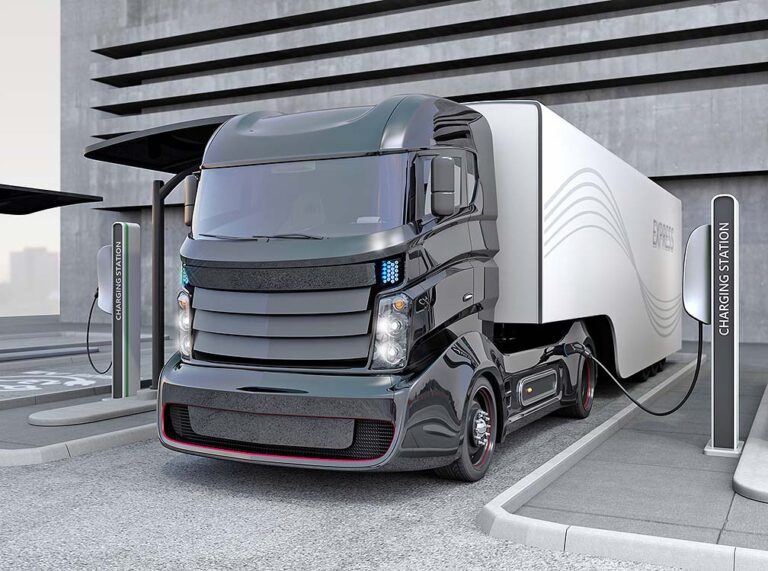ARLINGTON, Va. — The American Transportation Research Institute (ATRI) has released a new report that analyzes the environmental impacts of zero-emission trucks (ZET).
This analysis, a 2021 top priority of ATRI’s Research Advisory Committee, utilized federal and industry-sourced data to identify and compare full life-cycle CO2 emissions for a range of truck types, including a baseline diesel truck, battery electric trucks and hydrogen fuel cell trucks, according to a news release from ATRI.
The study found that while electric trucks have no direct tailpipe emissions, CO2 production associated with vehicle, battery and electricity production would only result in a 30 percent decrease in CO2 emissions when compared to a standard diesel truck.
The marginal environmental benefits of electric trucks are due, in large part, to lithium-ion battery production – which generates more than six times the carbon of diesel truck production. The research, which utilized outputs from the Argonne National Lab’s GREET Model, also incorporates CO2 emissions that generate from the U.S. electrical grid – which still relies primarily on fossil fuels. ATRI ’s research concludes that hydrogen fuel cell trucks are ultimately the most environmentally friendly truck type, although the technology is not presently feasible for long-haul operations.
“The U.S. trucking industry is strongly committed to carbon-reduction efforts, and electric motors and drive trains offer many additional performance and maintenance benefits,” said Hugh Ekberg, President and CEO of CRST. “But ATRI’s research highlights that several of the leading zero-emission approaches being advocated today still need additional research to fully understand how the different technologies can be best developed and utilized to maximize carbon reduction.”
The report concludes by identifying additional strategies that can reduce CO2 truck emissions for all three energy sources – diesel, electricity and hydrogen. For example, renewable diesel could decrease CO2 emissions to only 32.7 percent of a standard diesel engine without requiring new infrastructure or truck equipment. Finally, hydrogen sourced from solar-power electricity could enable hydrogen fuel cell trucks to emit only 8.8 percent of the baseline diesel CO2.
A copy of the full report is available through ATRI’s website by clicking here.
The Trucker News Staff produces engaging content for not only TheTrucker.com, but also The Trucker Newspaper, which has been serving the trucking industry for more than 30 years. With a focus on drivers, the Trucker News Staff aims to provide relevant, objective content pertaining to the trucking segment of the transportation industry. The Trucker News Staff is based in Little Rock, Arkansas.









It is uncanny how much negative PR is aimed @ the budding EV technology; The Big Oil oligarchs seem to be working overtime to keep their addicts addicted to their highly profitable government subsidized/regulated black gold…
You guys are enjoying inflation? Because it has a lot to do with oil prices and they’re going to keep going up! Higher demand over time combined with lower offer over time = exponentially higher prices over time, basic economics. It was fun, but it’s time being grown ups and thinking about our kids and not only our own pockets like a bunch of crooks.